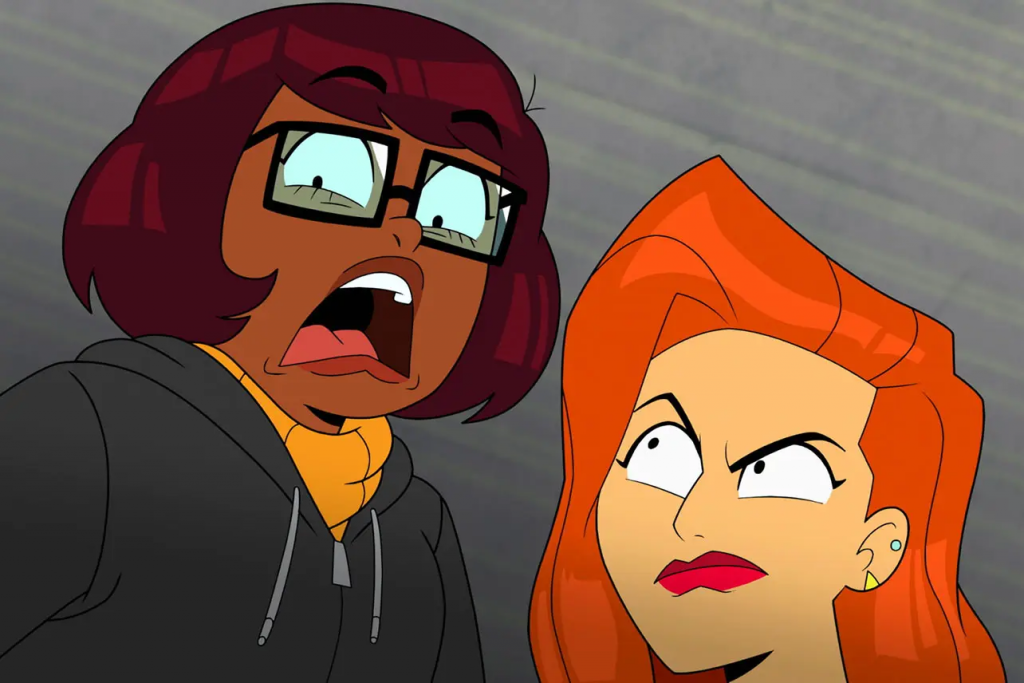“Scooby-Doo, Where Are You!” first aired in 1969, and the franchise has been a cultural phenomenon ever since. The “Scooby-Doo” universe spans television, film, video games and comics, impacting every generation since its inception. The most recent addition to the franchise is HBO Max’s “Velma,” which had 10 episodes released this year, from Jan. 12 to Feb. 9.
“Velma” gained notoriety when it was released as it received poor reviews, making history as one the lowest-rated TV series on the fan review website, IMDb. It currently has a 1.4 rating out of 10 on IMDb and is the third lowest-rated television show on the website. Critics also maligned the show, as it has a rotten 42 percent approval rating on Rotten Tomatoes. Despite all the negative press, is “Velma” really that bad?
The short answer is no, “Velma” is not one of the worst television shows ever created, but it is not a good show by any metric and deserves some of the hate it gets. “Velma” stars Mindy Kaling as the titular Velma Dinkley, Glenn Howerton as Fred Jones, Sam Richardson as Norville Rogers and Constance Wu as Daphne Blake to round out the four human members of the Scooby-Doo Mystery Gang. Notably, Scooby himself is absent from the show as it focuses on the origin of the gang before they had their lovable dog.
One of the weakest points of “Velma” is the writing, from the characters themselves to the overarching storylines and even to the individual lines said by characters. It feels as though the show expects the viewer to come in and automatically root for Velma because she is an established character. With this, the writers of “Velma” forgot to make her a likable character. Rather she is whiny, controlling and a horrible friend to Rogers in particular. The show even acknowledges this flaw and has a scene where Velma pretends to be a man and all her negative traits suddenly become positive ones. While this might work in the fictional “Velma” universe, it does not in the real world where Velma would not be considered a likable person, regardless of her gender or race.
Furthermore, the plot lines that run through the whole first season of “Velma” are rather dull and lack the poignant mystery writing that kept “Scooby-Doo” relevant for over 50 years on television. The two main mysteries are about who kidnapped Velma’s mom and who the birth parents of Daphne are. Starting with Velma’s mom, the mystery of her disappearance is rather weak because the audience had no time to get to know her and care about her being found. Furthermore, when Velma tells anecdotes about her mother, they often seem quite negative and it does not make sense why Velma is so intent on finding her mom when she only has bad things to say about her. Similarly, the mystery of Daphne’s parents is not fleshed out enough to make a meaningful contribution to the story of “Velma,” yet it still manages to take up a lot of the runtime of the show for the first half of the season.
The dialogue in “Velma” is likewise horrific from a screenwriting point of view as some of the lines are incredibly cringey. The worst offenders are probably Velma and Jones, although for different reasons. Velma’s lines are often too heavy-handed and lack the subtlety necessary to handle important issues such as racism and sexism. On the other hand, Jones’ lines often resemble things that an elementary schooler would say rather than a high school student. The point of his character is to show that his privilege has allowed him to lead an over-comfortable life where he has not had to grow, but his lines are too comical and unbelievable to the point of taking away from the believability of the show.
Another frustrating aspect of “Velma” is that it tries to have its cake and eat it too. The show follows in the footsteps of “Deadpool” by breaking the fourth wall as Velma seems to know that she is making her own television origin show. However, this does not work because the show commits the very same sins that it criticizes in other shows. For instance, in the first episode of the show, Velma makes fun of shows that have extra sexual content in their first episode to gain viewership, yet the show does exactly that in its premiere. Furthermore, the show sexualizes teenage girls by showing multiple scenes with them showering. It is difficult to watch “Velma” because it proclaims itself to be a progressive show, yet falls into the same pitfalls of prior television shows.
The only saving grace of “Velma” is that it is a funny show to watch with your friends and laugh at just how crazy it is that a show like this was made and released on a major streaming service. Although “Velma” is funny in ways that it does not intend to be, it still gives the show entertainment value in a roundabout way where it is somewhat enjoyable, even if that is not what the show creators meant for it to do.
On the whole, “Velma” does not achieve what it set out to do as a television show. It does not add anything meaningful to the “Scooby-Doo” universe, it does not have anything new to say about current events and it does not break away from the outdated traditions of network television. However, “Velma” is still entertaining to watch, having the so-bad-it-is-good quality that keeps it from being one of the worst television shows ever made.
Rating: 1.5 out of 5 stars



